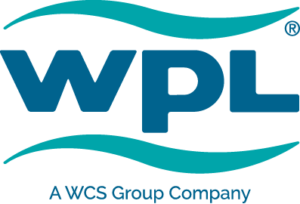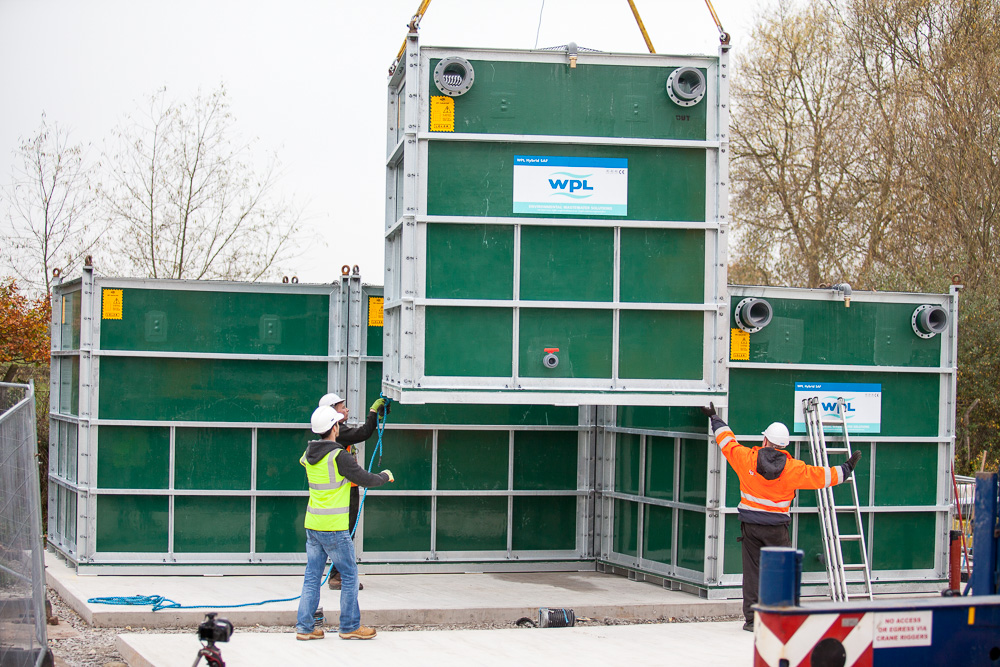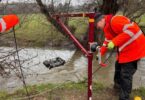In this Water Quality Month Q&A we spoke with WPL Technical Director, Andrew Baird, about water industry challenges, the importance of water quality and how their environmental wastewater solutions help maintain quality standards throughout the UK.

So what is WPL all about?
WPL is part of the WCS Environmental Engineering Division offering sustainable water recycling solutions that provide site-specific environmental protection. We have been designing, building and installing custom wastewater treatment technology for 30 years. Our UK-patented biological technology provides robust treatment that ensures full environmental compliance for our clients, who include utilities, municipalities, the industrial and commercial sectors, as well as domestic homeowners.
Why is water quality still a topic of concern globally?
Globally over 800 million people do not have safe water to drink; providing access to clean water is crucial to human survival and progress on sustainability. Water is a finite resource with exponential demand from an expanding global population. The water we do have available is under threat from increasing levels of pollutants from a growing number of sources.
Why is Water Quality Month important to you?
Contaminants in freshwater sources, such
as phosphorous, can have a devastating impact on water eco-systems and wildlife, as well as impacting the quality of drinking water. This is something that affects us all and we all have a part to play in the solution. That is why it is so important to raise awareness, engage and educate.
What role does the water industry play in improving water quality?
Water companies and the supply chain provide a critical service in treating wastewater in accordance with the environmental standards set by regulators. When it comes to improving water quality, a key part of the solution is to improve wastewater management to ensure these standards are met and maintained, while preventing contamination of freshwater sources, enhancing the treatment process and reducing pollution events.
The water sector is driven by highly skilled experts who are committed to making these improvements and, like us, are continually researching and developing new technologies and enhancing existing solutions. New platforms to accelerate innovation and encourage collaboration within the industry are also enabling progress.
What steps are you taking to help improve water quality?
At WPL, our engineers ensure that wastewater treatment plants are designed and proven to exceed all current and proposed discharge consent standards from regulatory bodies. This gives certainty that discharges of effluent to water sources are fully compliant and that water quality is protected.
When it comes to phosphorous removal, the expectations placed on water companies by regulators are growing with each investment cycle and this trend is set to continue. We can expect ever-tightening regulations, in response to the need for enhanced protection of our waterways.
We continually develop our patented technologies, working closely with academic partners. We are making demonstrable gains in energy efficiency and process capacity.
If you could change one thing about the way water quality is managed currently, what would it be?
There is no single solution to ensure the protection of water quality, which is why greater collaboration across the sector is vital. This includes more widespread sharing of data between water utilities and their suppliers, which would not only support the design, build and operation of treatment plants, it could also reduce costs and, most importantly, drive innovation.
What are your hopes for the future of our water sources?
While there are solutions already available to protect water sources, we would like to see more attention on stopping pollution at source and at catchment level. We also hope to see further investment into innovation in wastewater treatment, which will enable the sector to continue raise the bar on improving standards and monitoring discharges, in line with tightening regulations.
What role do you think technology will play in securing water quality?
While advances in treatment technology over the last three decades has resulted in significantly cleaner rivers and seas, high numbers of rivers and lakes in England still fail phosphorus standards for good ecological status. According to the Environment Agency, phosphorus is the most common cause of water quality failures under the Water Framework Directive in England.
We work in close partnerships with our utility customers, as well as with other supply chain experts and our academic partners to address the issue. This joint approach is yielding encouraging results and we are confident we will see technological advancements designed to meet both economic expectations and environmental standards emerging very soon.
Do you have an article to share? Click here to submit or if you’d like to subscribe to our weekly newsletter, click here.







